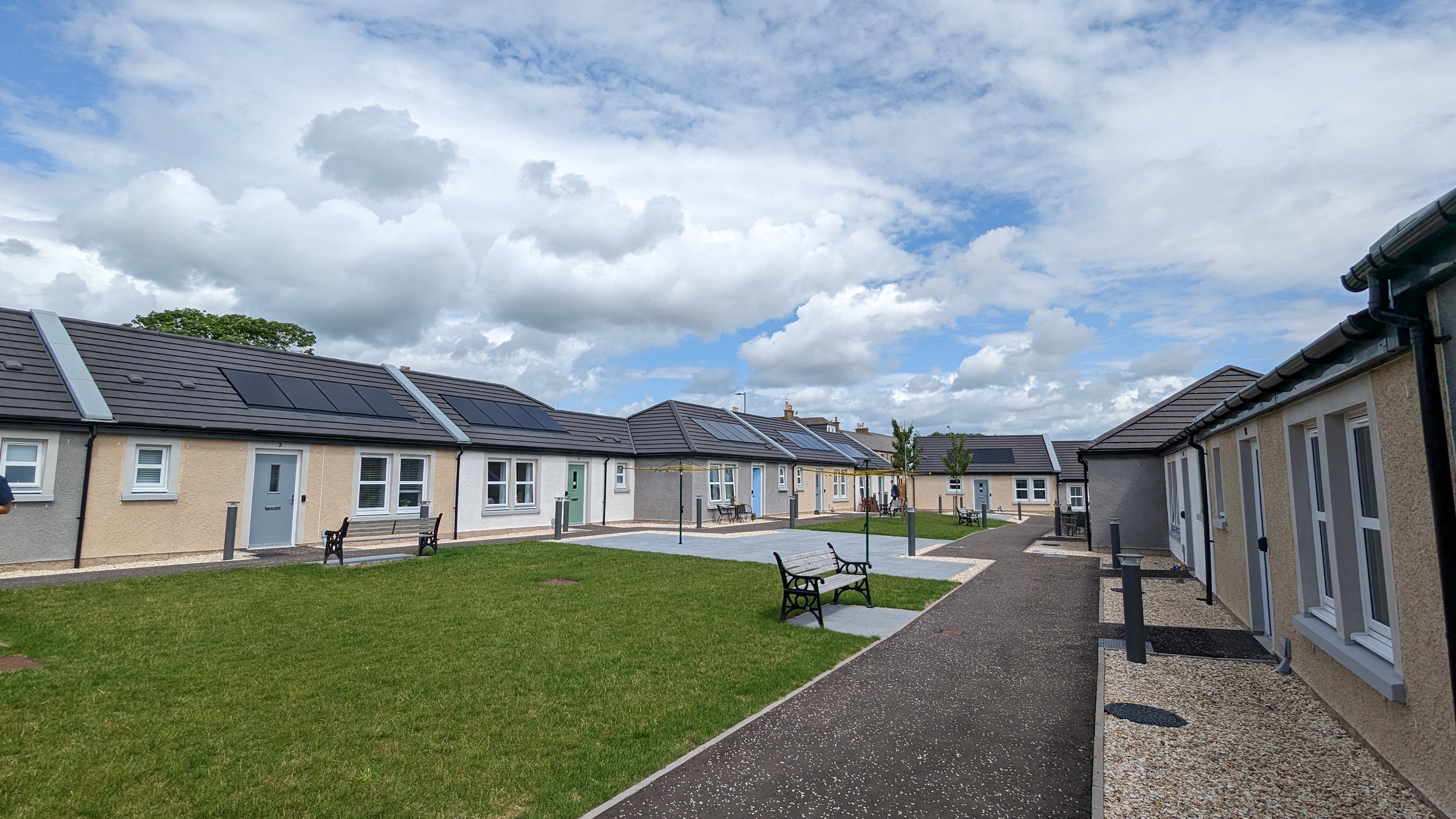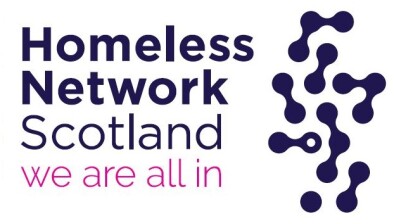Expert report sets out future role of supported housing in Scotland

Being able to control where we live, seen as a key factor in our personal wellbeing and in living our life the way we want to, is being compromised by the housing emergency, especially for those in temporary and shared forms of accommodation, experts have warned.
The Supported Housing Task and Finish Group, appointed by the Scottish Government and COSLA, publishes its final report today, recommending that national and local emergency plans should prioritise work focused on reducing temporary accommodation and better targeting shared and supported forms of housing.
The group charted a new direction to position supported housing more confidently among the range of housing options available. It recognises that most people can build and live their lives in an ordinary home as part of an ordinary community, but that supported housing should be available for a very small proportion of the population who are unable or don’t want to live in mainstream housing.
Importantly, this should be a settled housing option for as long as someone wants it, and therefore breaking the stigma of ‘homeless’ supported housing altogether.
The physical environment of supported housing is important too. The research clarified that people don’t want to share a bedroom, bathroom or kitchen. And choice is key – the option, rather than requirement, to use shared spaces is what people want.
The group also set out a vision of the best spaces for people to live in, the support on offer, and the funding and commissioning challenges and changes needed to make the report’s aspirations reality. Its report follows a comprehensive review over 14 months that drew on new research of people using shared accommodation and a survey of local authorities.
Key recommendations from the evidence-led review include:
- An ideal model of supported housing offering a self-contained home in a smaller-scale setting, with its own bathroom and cooking facilities, easy access to great support, some common space, and consistent quality standards.
- Maximising security of tenure for tenants plus fair funding arrangements to make sure no one is stuck in a life-limiting ‘benefit trap’ created by high rents.
- Moving to a joint funding and commissioning model between health and social care partnerships and local authorities, to break the ‘care group’ stigma attached to supported housing’s legacy as shared ‘homeless’ accommodation.
The Task and Finish Group, co-chaired by Homeless Network Scotland chief executive Maggie Brunjes and Scottish Federation of Housing Associations policy lead Eileen McMullan, provides recommendations to the Scottish Government, local authorities and housing providers to create a model that enables social landlords to remodel or reprovision existing models of supported housing.
The group built on work in the Shared Spaces research which clarified the role of supported or shared housing as a settled home option for the 2 to 5 per cent of homelessness applicants who are locked out or opt out of a mainstream tenancy.
The review was informed by evidence from expert contributors on housing and support themes, a survey of 19 local authorities providing supported accommodation across Scotland, case studies of existing good practice, and lived experience expertise.
An overall ambition was to chart how supported housing can sit more confidently within the range of housing options, in a modern policy landscape focused on prevention, rapid rehousing and the Housing 2040 vision for future housing in Scotland.
The group makes clear that this transformation must be supported and enabled at a local and national level, over a realistic timescale and involving colleagues across housing, health and social care at a planning, commissioning and delivery level.
And it points to the complex DWP funding mechanisms that create a range of important considerations and consequences for residents and for local authorities.
The report adds that supported housing may be considered as an option for young people who don’t have high support needs but who want to stay in a shared living environment with peers.
The Task and Finish Group final report launch is supported by a webinar and ministerial visit to Queens Cross Housing Association in Glasgow (QCHA), which provides housing with flexible support for young people aged 16 to 25.
Shona Stephen, QCHA chief executive, said: “We’re delighted to welcome the Housing Minister to our new housing development for young people. We are very proud of the exceptional quality of accommodation provided by Queens Cross Housing Association and by its Housing First for Young People support team.
“We work together to provide homes for young people and the support needed to allow them to flourish in their tenancies. Our success is rooted in kindness, in never giving up and in a shared commitment to our young people across the organisation from staff to Board Members. The benefits of close collaboration between the support team and the landlord can be seen in the successes achieved by the young people themselves.”
Maggie Brunjes, Homeless Network Scotland chief executive, said: “Homelessness policy has undergone radical modernisation in recent years and transforming the way supported housing is used to support a small group of people is the final piece of the puzzle.
“While this report arrives in a landscape dominated by the housing emergency, it sets out all the evidence and the steps needed to reframe supported housing as an option that will help to address homelessness for people facing a range of social, health and economic disadvantages. Queens Cross Housing Association provides an excellent example of how that is done.”
Housing minister Paul McLennan said: “I welcome the publication of this report, which explores how supported accommodation can make a positive contribution to preventing and responding to homelessness.
“The Scottish Government remains committed to tackling homelessness and improving the supply of social and affordable housing in Scotland. We will carefully consider all of the recommendations set out in the report and will respond in due course.”
Sally Thomas, chief executive at the Scottish Federation of Housing Associations, said: “It’s essential that our housing system is fair and meets everyone’s needs, particularly at a time of a national housing emergency and record homelessness.
“This vital report sets out the importance of a joined-up, multi-agency approach and one of the core aims is to help to reduce the stigma of supported housing.
“Queens Cross Housing Association, like many SFHA members across Scotland, not only provide high quality, warm, affordable homes, they also offer a vital lifeline in supported housing to help individuals overcome many of the barriers associated with homelessness.”
SFHA’s Eileen McMullan and Homeless Network Scotland’s Maggie Brunjes will provide a detailed overview of the report during the webinar today.








